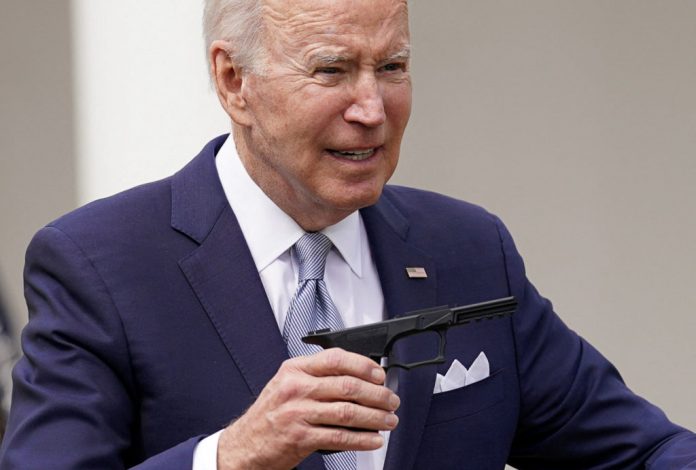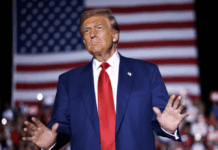
President Biden and his administration have been far from silent on pushing for gun control, specifically an Assault Weapon Ban after each of the major incidents regardless of circumstances.
Every slaying, they seem to think, can be solved or made less lethal if only we’d ban semi-auto firearms and limit magazines to 10 rounds. No word on how in the wide wide world of sports they expect to get hundreds of millions of semi-auto weapons out of circulation currently, prevent murders, suicides, and accidents with any weapon other than a semi-auto, or prevent the manufacture of new ones from 3D printing and other simple production mediums.
But that won’t stop him from making the noise.
NPR sat down and asked one of their experts,
Let us see what they came up with. I’ve been unsympathetic to NPR as of late, they’ve held onto several untenably stupid opinions as ‘fact’ when it comes to gun control and other subjects. Even if you personally do not care for firearms, even if you dislike firearms in private hands, that doesn’t dissolve responsibility as a conveyor of information (especially publicly funded), from coming at the information objectively and with aggressive reason.
From NPR,
NPR’s A Martinez speaks with gun control expert Robert Spitzer about President Biden’s push for an assault-style weapons ban after recent mass shootings in Colorado and Virginia.
A MARTÍNEZ, HOST:
President Biden is seeking to pass a ban on assault rifles before the end of the year. He’s making that pitch in the immediate aftermath of several deadly mass shootings across the U.S. in recent weeks. Democrats have made this proposal dozens of times in recent years, but they have been able to get it done, mainly because many Republicans in Congress oppose any type of gun control. So will it be different this time around? For more, we turn now to Robert Spitzer. He’s a distinguished service professor emeritus of political science at SUNY Cortland and an expert on gun policy. Professor Spitzer, what kind of pitch does President Biden need to make to push increased gun control legislation through Congress before the end of the year?
ROBERT SPITZER: I’m not sure there’s anything he can say that will make the Senate move. It’s important to remember that the House of Representatives has already passed an assault weapons ban bill and included in that a limit on large-capacity magazines, which arguably is even more important. But as you just discussed, the Senate has a full plate. The spotlight will be on the Senate when it comes to assault weapons and possible action. But it’s hard to imagine the Senate mustering 60 votes to enact a new assault weapons ban.
MARTÍNEZ: You know, professor, I was going to start off by asking you how likely it is that he would be able to push gun control legislation through Congress because usually, the answer is not likely. But not even a pitch, no pitch at all you think could crack the Senate?
SPITZER: Well, he might want the Senate to take a vote. And other Democrats might want a vote to be held, as well, just so that they’re on record on the issue. The assault weapons ban idea is supported by most Americans. It’s been floating around a long time. And so for political reasons, there might be a push to go ahead. But with so much on the Senate’s plate and on Congress’s plate, I think it will be a difficult haul. And the question that he will need to ask is whether that’s where he wants to put significant political effort in the short time between now and when the new Congress convenes in January.
And here we stumble across the real goal of making this noise from the White House.
This isn’t about the safety of the American people, there is no realistic way that the White House can accomplish anything with a ban and I’m done believing they’re just altruistically stupid. This isn’t tackling the myriad of problems that result in violent conclusions. This isn’t about assessing why young people seem to be committing an appalling number of excessively violent attacks, or why urban violence is so substantially increased.
This is about saying the right things so that they ‘tried’ the right amount to point at those who didn’t vote for it and blame them. It is all about passing the buck and not being held to blame for something they are actually blameless for already, but their voter base gets grumpy and they can win political capital.
MARTÍNEZ: What about executive action to overcome the gridlock?
What about directing the DoJ, you know… something he is in charge of, to follow through on more NICS Denial cases, put resources into making sure NICS is as up-to-date, easy to access, and constantly functioning as it can be. Perhaps make certain their are enough NICS examiners and data folks as compared to IRS agents since the number of bodies in the ground due to 1099-EZ’s is significantly lower than violent crimes.
SPITZER: President Biden issued some executive actions this past summer pertaining to the gun issue. And he probably will be looking at a way or may be looking at a way now to tweak existing rules that could affect gun policy. But it’s important to remember that executive orders are not the vast, sweeping, unlimited powers that many people ascribe to them. And he this summer, for example, said that they would tighten up on gun dealer regulations and on restricting ghost guns. And especially moving on ghost guns, I think, will be significant in terms of executive actions. But it’s not clear that there’s a whole lot more he can do within the realm of executive orders and other unilateral actions because important policies are still framed by Congress.
So… no. He won’t do anything meaningful because meaningful wouldn’t line up with politically advantageous. We’ll be promised he is trying but no complex action will be taken and certainly no action that would put him at odds with his necessary voter bases, he’s got two years to look useful enough to get re-elected and hope that the Republicans are foolish enough to run an annoying meme-grade candidate that won’t make him look like the slack jawed buffoon who cost them so dearly this midterms. The only reason the Dems weren’t taken to the cleaners was some of the more imbecilic decisions of the Republicans.
We have gridlock instead, and maybe that’s for the best. But Biden is still going to cry and “try” for something with this Congress, so at least he can blame them. He won’t even have to blame them long since the new Congress will seat and then the actions of the old one won’t matter so much anymore.
It’s just political hot potato.
MARTÍNEZ: Biden has also mentioned red-flag laws, the lack of enforcement of red-flag laws around the country. Now, those are state laws. What could Washington do to increase enforcement of red-flag laws across the country?
Remember the BSCA? Are you telling me the BSCA, the most meaningful and comprehensive piece of gun legislation in a generation as Biden told us, isn’t doing diddly to curb violence? What about that boyfriend loophole!? Surely that loophole being unlooped has saved people, right?
SPITZER: In the bipartisan gun bill that Congress passed and President Biden signed this past summer, there was a provision to encourage more states to adopt red-flag laws and to provide funding for them. And he’s – at the least, I would think would want to be very public to encourage states to move ahead in doing that. Nineteen states have red flag laws in place right now. And one of the problems we’ve seen is that often, the enforcement of these laws is pretty spotty, and knowledge of red-flag laws is very limited. And red-flag laws are typically triggered when a family member or somebody who knows somebody who owns guns and who makes a threat against others or against themselves then goes to the police to begin the red-flag law process to perhaps remove guns from the person. But you’ve got to be able to know that you can do that before the process begins. And much more publicity could be issued surrounding that. That’s not an executive order matter, per se necessarily, but it’s something that could be done to increase the effectiveness of red-flag laws.
So it is as vague an ineffectual as predicted.
People are reluctant to snitch on their neighbors and family. Judges, doctors, and cops are reluctant to be professionally liable for wrongly flagging someone. I don’t think that the ‘publicity’ is what is lacking, its that there was no hope it would work to begin with.
MARTÍNEZ: I remember as candidate Biden, he had promised to hold gun manufacturers accountable and repeal a law that provides protection for gun-makers. What kind of an impact would that kind of move make?
How? How would Biden keep this absurd promise?
We just said he wasn’t going to be able to move legislation, so how would he manage a repeal of the PLCAA and why would it have a positive effect?
SPITZER: If Congress decided to move ahead with changing the law to allow lawsuits against gun manufacturers to proceed, that would be a major, major change. It’s not on the agenda, and it is not something to my way of thinking that the president could advance through unilateral presidential actions.
Oh it isn’t, the President just lied for political capital. Gotcha.
It would be a major change, an absurd one that tied up money of manufacturers defending spurious lawsuits for people misusing their products.
MARTÍNEZ: It sounds pretty hopeless for people that want some movement on this, professor.
It should, especially after Bruen. Stop screwing around with the ease bake oven solutions that solve nothing and start working on the individual criminal environments of the cities and counties that are the problems. Those socio-economic environs will require tailored approaches and solutions specific to their unique situations. None of them, and I do mean none of them will be perfect or foolproof but they can, over time, rebuild confidence in the civility and rule of law within the spaces.
SPITZER: Well, the only other question, I think, is whether movement could be made separately on limiting large-capacity magazines because that’s a major problem.
No, it isn’t. This argument is stupid and demonstrates a willful lack of understanding of how a firearm operates. Magazine capacity is not a problem, it is a strawman argument that relies on perfect responses to perfect situations and the magical disappearance of literally hundreds of millions of durable magazines from ever being used in a crime again.
Gun control is one of the ultimate expressions of ‘stupidly altruistic’ by using no critical thinking. Just pass the law and things will get better, we promise. Don’t ask how, you’re just a gun extremist if you do.
MARTÍNEZ: Gun control expert Robert Spitzer, thanks for your time.
SPITZER: You bet.
So none of my faith in NPR’s deep and critical journalistic problem solving has been restored by this interview. Gun control continues to be the Utopia Fantasy of ‘if everything goes right than nothing will go wrong’.
If we just had a few more rules against shooting people indiscriminately then people will stop.
Sounds stupid when you put it that way, doesn’t it.



